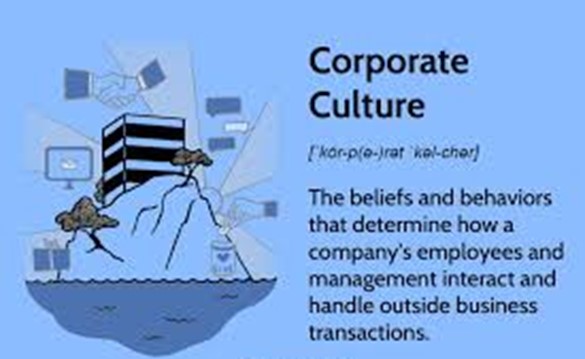
The moments we spend in the campus are the magical moments in our life. We are carefree, we enjoy, we freak out, make new friends, we fight, we debate amongst ourselves and at the same time we nurture our friendships, discuss on the potential avenues for our business life. We are hardworking and sincerely persevere to reach to our dreams career.
When we are poised to enter the corporates, we should know what corporate culture is and what are the competencies we need to hone, polish to enter and thrive in the corporate culture. Our acumen in our domain field is not enough. There are many skills like networking, teamwork, interpersonal interactions, adaptability, flexibility, decision making, problem solving, emotional agility and……the list is long, and we need to constantly work upon these skillsets. Professional help in developing these competencies should be sought at the right time so that we are not left behind.
What is corporate culture?
Corporate culture, also known as company culture or workplace culture, refers to the shared values, beliefs, and behaviours that define how a company operates and how employees interact with each other and the external world. It’s the “personality” of an organization, influencing everything from employee interactions to decision-making. A strong corporate culture can be a significant factor in a company’s success.
Key Elements:
- Shared Values and Beliefs
- Workplace Environment and Practices – HR policies, day to day work habits
- Leadership and Employee Behaviour
- Communication and Collaboration
- Recognition and Reward
Types of Corporate Culture:
- Clan Culture: Emphasizes teamwork, mentorship, and a family-like atmosphere.
- Elite Culture: Focuses on high performance, innovation, and competition.
- Horizontal Culture: Characterized by flat hierarchies, decentralization, and employee empowerment.
- Conventional Culture: Prioritizes stability, tradition, and established procedures.
- Progressive Culture: Emphasizes adaptability, innovation, and forward-thinking.
- Market Culture: Driven by results, competitiveness, and customer focus.
Why is it important?
- Employee Engagement and Retention:
- Conducive environment for Innovation and Creativity:
- Customer Satisfaction:
- Brand Reputation:
- Business Performance:
A positive culture can lead to improved profitability, productivity, and overall business success.
In conclusion, corporate culture is a vital aspect of any organization, shaping how employees interact, how decisions are made, and how the company is perceived by both its employees and the outside world.
The 5 Cs of corporate culture related to employees and leaders:
Curiosity, Comfort, Clarity Confidence and Cultural competence.
These 5 cs strengthen the 4 pillars – People, Processes, Prospects and Products, which take the organisation to the path of business excellence.
Elements of Culture That Matter Most to Employees
- Employees feel respected.
- Supportive leaders.
- Leaders live core values.
- Toxic managers
- Unethical behaviour.
- Perks and Benefits.
- Learning and development.
- Job security.
- Job rotations, restructuring.
Indian corporate work culture is slightly different and is still in the process of imbibing a 360-degree approach. It still has a strong emphasis on hierarchy, respect for authority, and building relationships with colleagues. While traditional aspects like long hours and a focus on productivity persist, there’s a growing awareness of work-life balance and a shift towards more collaborative approaches.
In conclusion, Indian corporate work culture is a complex and evolving landscape, characterized by both traditional values and modern trends. While long hours and a hierarchical structure persist, there’s a growing awareness of the importance of work-life balance, employee wellbeing, and more collaborative work practices.
Summarily, the corporate culture is complex, challenging, evolving but interesting. If we work on the key inter-personal and cognitive skills like analytical skills, strategic thinking, decision making, problem solving, networking, team-oriented approach, communication skills and emotional intelligence we can be the drivers of the culture of collaboration, cooperation, process orientation and result orientation and create our own niche in the corporate setup and thus we are sure to propel our career in the corporate set-up and reach the destination of dream career we contemplate during our campus days!!
